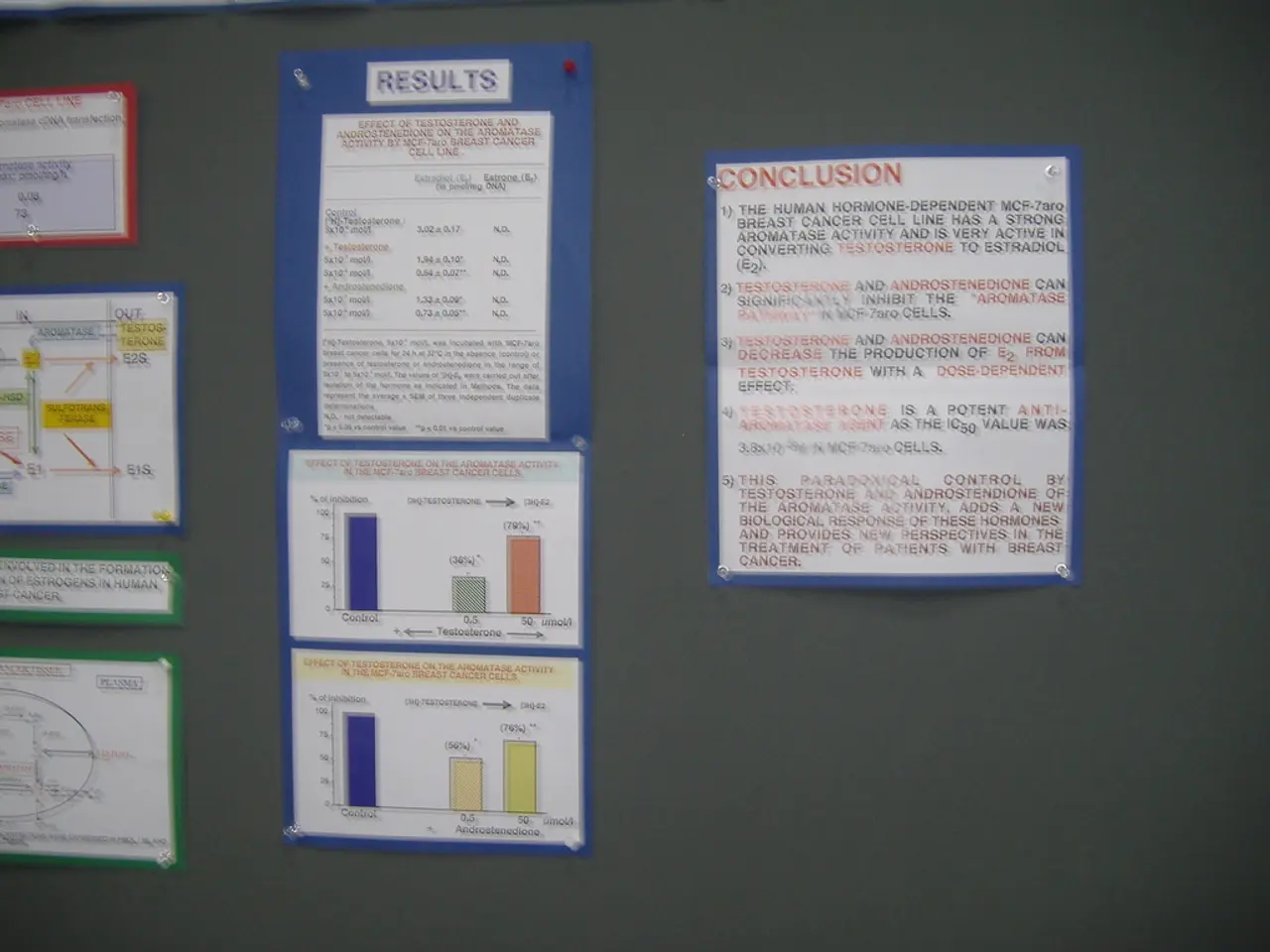Increased AUM and Own Funds reported by the majority of mutual entities
In the heart of the City of London, UK Chancellor Rachel Reeves delivered a speech last night, addressing the state of the UK economy and the insurance sector. One of the key takeaways from her speech was the focus on the mutual and cooperative market, as the government aims to double its size. This initiative, according to Broadstone's 2024 Solvency and Financial Condition Report (SFCR) Analysis, presents a promising opportunity for financial mutuals [1].
The report reveals that UK financial mutuals are facing significant challenges, including political shifts, rising claims costs, and a competitive growth environment. Despite these challenges, the sector remains financially resilient, with increasing assets under management and own funds [1].
The average Gross Written Premium for participants in the mutual sector increased to £116m in 2024, from £105m in the previous year. However, Gross Claims Incurred also rose from £137m to £149m, indicating growing cost pressures [1]. Despite these increases, 57% of mutuals saw total asset growth. Notably, Shepherds Friendly recorded the largest increase (19%) in total assets due to new business and positive investment income [1].
The average Own Funds for participants in the mutual sector rose from £143m in 2023 to £149m in 2024, reinforcing the sector's financial robustness [1]. Most participants reported pay out rates in excess of 90% on their insurance products, further demonstrating their ability to serve members effectively [1].
The PRA's policy statement PS2/24 Review of Solvency II: Adapting to the UK insurance market sets out revised thresholds for being considered a small insurer. This means that those that now fall below the Solvency II thresholds can choose to operate under the non-Directive firm (NDF) rules [2]. Remaining within Solvency II is also an option for insurers that fall below the thresholds [2].
Debbie Webb, Pensions Board Chair at the Institute and Faculty of Actuaries, commented on the Chancellor's speech, acknowledging the efforts to stimulate growth in the UK economy and improve Defined Contribution (DC) and Local Government Pension Schemes [3].
The report also highlights external challenges faced by firms in the UK financial sector such as geopolitical volatility, inflation, cost of living pressures, and operational risks including cyber threats. However, financial mutuals appear comparatively well-positioned due to their member-focused model and asset growth [2][3].
In conclusion, Broadstone’s 2024 SFCR Analysis identifies a mutual sector characterized by resilience and growth potential, supported by government ambitions, but also grappling with increasing claims costs and a complex economic-political environment [1]. A full copy of the Report can be found at [https://broadstone.co.uk/sfcr-2024/].
[1] Broadstone. (2024). Broadstone’s 2024 Solvency and Financial Condition Report (SFCR) Analysis. Retrieved from [https://broadstone.co.uk/sfcr-2024/]
[2] PRA. (2024). Policy Statement PS2/24 Review of Solvency II: Adapting to the UK insurance market. Retrieved from [https://www.bankofengland.co.uk/pra/Documents/publications/ps/2024/ps224.pdf]
[3] HM Treasury. (2024). Mansion House Speech: Chancellor of the Exchequer, Rachel Reeves. Retrieved from [https://www.gov.uk/government/speeches/mansion-house-speech-chancellor-of-the-exchequer-rachel-reeves]
The UK Chancellor's speech emphasized the government's focus on the mutual and cooperative market in the insurance sector, aiming to double its size, which aligns with the positive opportunities highlighted in Broadstone's 2024 Solvency and Financial Condition Report (SFCR) Analysis.
Despite the challenges faced by UK financial mutuals such as political shifts, rising claims costs, and a competitive growth environment, the sector remains financially resilient, with increasing assets under management, own funds, and pay out rates in excess of 90%.




